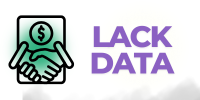New research analyzing more than 16 million websites suggests that Google is indexing more pages recently than it used to . However. many pages remain unindexed. and more than 20% of them are eventually deindexed. The data also shows that if a page is not indexed within six months. the likelihood of it being included in search is very low. This is crucial for websites that focus on SEO and indexing. and shows that despite some improvements. content visibility on Google remains a challenge.
Perplexity cites sources 2.5 times more often than ChatGPT
New analysis from xfunnel.ai has revealed significant differences in citation frequency between AI search engines. The research. which examined 40.000 answers containing a total of 250.000 citations. found that Perplexity AI cites external sources 2.5 times more often than ChatGPT. The study also suggests that AI search engines cite third-party content the most. and that high-quality websites dominate the sources cited. Although mid-tier sources also appear frequently. These findings provide important insights into how individual. AI platforms work with external content and what strategies website owners can use to improve visibility in the answers they generate.
Study shows impact of inclusion in Google AI
A new study by Terakeet has revealed that websites included in Google AI Overviews receive significantly more traffic than those whatsapp number database excluded from these results. The research showed that sites included in. AI Overviews receive up to 3.2x more clicks on high-ranking transactional queries and 1.5x more clicks on top-ranking informational queries. AI Overviews also help lower-ranking websites increase their visibility and traffic. Conversely. sites that do not appear in Google AI Overviews lose out on organic traffic. Underscoring the importance of optimizing content for placement in these sections.
Google faces EU charges over search bias
The European Commission is set to charge Google with violating the Digital Markets Act (DMA) for allegedly favoring its own services how to create a website for a startup in search. Google has long faced accusations that it favors its own platforms. such as Google Shopping. in search results. Which regulators say distorts competition. Recent algorithm changes say they are insufficient. The case could have a significant impact on the future of search and online marketing in the European Union.
Google has warned that stricter
Requirements could lead to the removal of some features. which could harm the user experience. Tensions between Google and fresh list regulators have escalated after the company suggested it could revert search results to basic blue links if forced to make further changes. The DMA prohibits tech giants from self-preference and carries. Fines of up to 10% of global annual revenue for violations. The outcome of the dispute could set new standards for how the EU’s digital market works.
